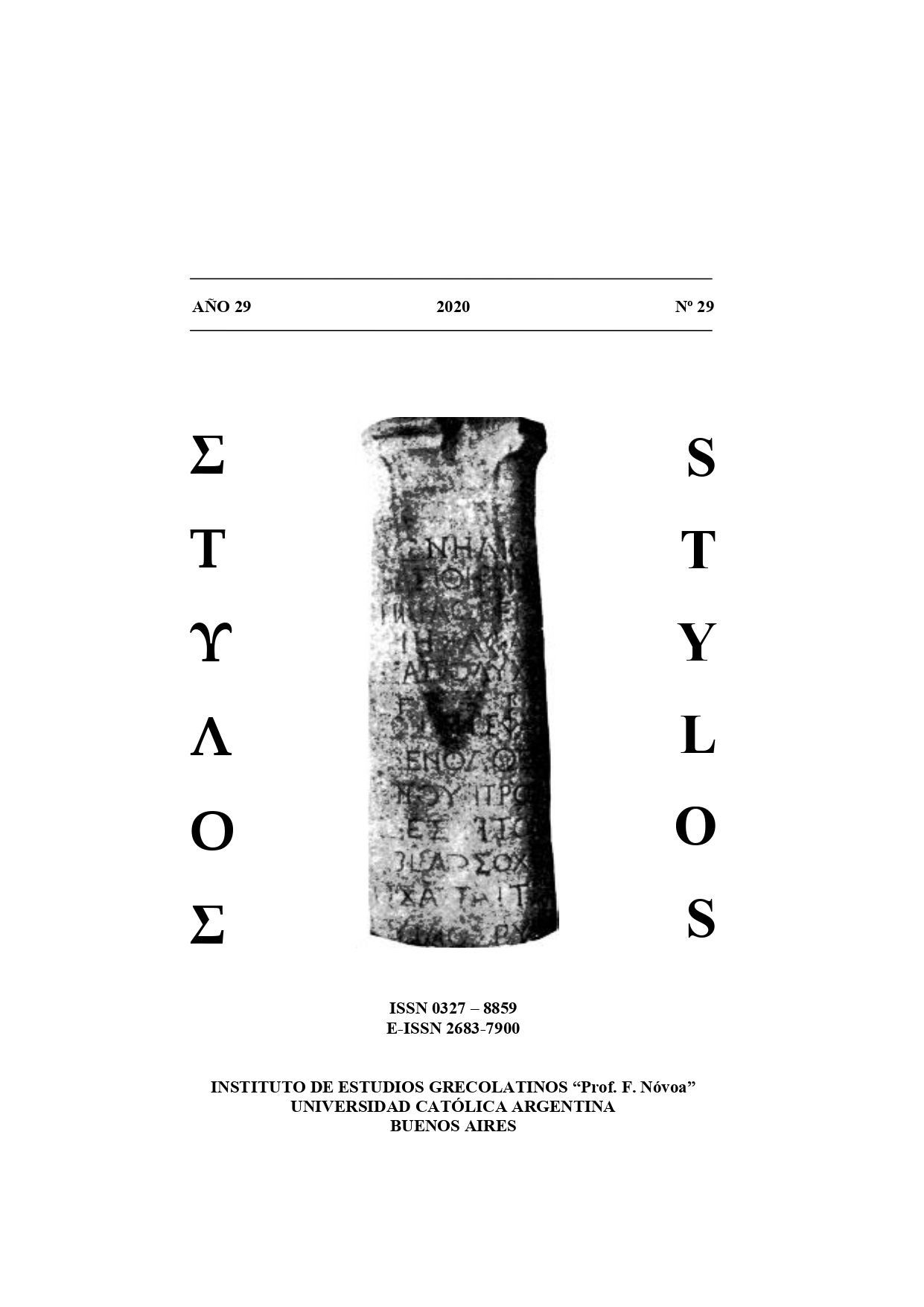AMICITIA EN ANNE CONWAY
Palabras clave:
Anne Conway, creación, transmutación, afinidadResumen
En el presente trabajo propongo explorar el concepto de amicitia en Principia philosophiae antiquissimae et recentissimae (1690) de Anne Conway como uno de los fundamentos metafísicos de su propuesta filosófica. Además quiero mostrar que parte de su reflexión puede entenderse por los lazos de amistad que generó con sus amigos Henry More y Francis Mercury Van Helmont, que incluso la llevaron a convertirse al Cuaquerismo hacia el final de su vida. En primer lugar ofrezco una breve introducción sobre el concepto de amistad desde la Antigüedad hasta el Renacimiento, luego realizo un punteo de los datos biográficos más relevantes de Conway en relación a sus amistades y, por último, me detengo en la aparición del concepto de amicitia que se encuentra en la única obra filosófica que tenemos de esta filósofa de la Modernidad Temprana.Descargas
Citas
ANNAS, J., “Plato and Aristotle on Firendship and Altruism”, Mind, 1977, 86.344: 532-554.
BYRNE, D., “Anne Conway, Early Quaker Thought and the New Sci-ence”, Quaker History, 2007, 96.1: 24-35.
CICERON, MARCO TULLIO, Laelius de Amicitia, texte établi et traduit par Robert Combès, Paris: Les Belles Lettres, 1971.
CLASSEN, A. Y SANDIDGE, M. (eds.), Friendship in the Middle Ages and Early Modern Age, Berlín - New York: De Gruyter, 2010.
CLASSEN, A., “Friendship in Twelfth-Century English Monastic Circles. The Case of Aelred of Rievaulx”, 30-36. En A. Classen Y M. Sandidge (eds.), Friendship in the Middle Ages and Early Modern Age, Berlin -New York, De Gruyter, 2010.
CONWAY, A., “Principia philosophiae” Opuscula philosophica XXXX ed.1690, 1-144.
COUDERT, A., “A Cambridge Platonist’s Kabbalist Nightmare”, Journal of the History of Ideas, 1975, 36.4: 633-652.
GORDON-ROTH, J., “What Kind of Monist is Anne Finch Conway?”, Journal of the American Philosophical Association, 2018, 4.3: 280-297, DOI: https://doi.org/10.1017/apa.2018.24.
HUTTON, S., Anne Conway: A Woman Philosopher, Cambridge: Cam-bridge University Press, 2004.
HUTTON, S., Henry More (1618–1687): Tercentenary Studies. Dordrecht: Kluwer.
JAEGER, S., “Friendship of Mutual Perfecting in Agustine’s Confessions and the Failure of Classical amicitia”, 185-200. En: Friendship in the Middle Ages and Early Modern Age, Berlin - New York: De Gruyter, 2010.
MAGNAVACCA, S., Léxico de la filosofía medieval, Buenos Aires: Miño y Dávila, 2005.
MERCER, C., “Knowledge and Suffering in Early Modern Philosophy: G.W. Leibniz and Anne Conway” , 179-206. En S. Ebbersmeyer (ed.), Emotional Minds. The passions and the limits of pure inquiry in early modern philosophy. Göttingen: De Gruyter, 2012.
MERCER, C., “Anne Conway’s Metaphysics of Sympathy”, 49-73. En: E. O’Neill y M. Lascano (eds.), Feminist History of Philosophy: The Recovery and Evaluation of Women’s Philosophical Thought, Berlin: Springer, 2019.
NICOLSON, M., The Conway Letters: The Correspondence of Anne, Vis-countess Conway, Henry More, and their Friends, revisado por S. Hutton, Oxford: Clarendon Press 1992.
ORIO DE MIGUEL, B., La filosofía de Lady Anne Conway, un proto Leibniz. “Principia Philosophiae Antiquissimae et Reentissimae”, Introd., trad., notas y comentario de Orio de Miguel, Valencia: Editorial de Universidad Politécnica de Valencia, 2004.
OSCHEMA, K., “Reflections on Love and Friendship in the Middle Ages”, 43-65. En: L. Gowing, M. Hunter y M. Rubin (eds.), Love Friendship and Faith in Europa, 1300-1800, [s. I. ] Palgrave: Macmillan, 2005.
REID, J., “Anne Conway and Her Circle on Monads”, Journal of the History of Philosophy, 2020, Volume 58. 4: 679-704.
REID, J., The Metaphysics of Henry More, Berlin: Springer, 2012.
RODRIGUEZ DONÍS, M., “La amistad en Cicerón: crítica del utilitarismo”, Fragmentos de Filosofía, 2007, 5: 82-113.
SLOMP, G., “As Thick as Thieves: Exploring Thomas Hobbes’ Critique of Ancient Friendship and its Contemporary Relevance”, Political Studies, 67.1: 191-206.
STANLICK, N., “Hobbesian Friendship: Valuing Others for Oneself”, Journal of Social Philosophy, 2002, 33.3: 345-59.
Descargas
Publicado
Cómo citar
Número
Sección
Licencia






